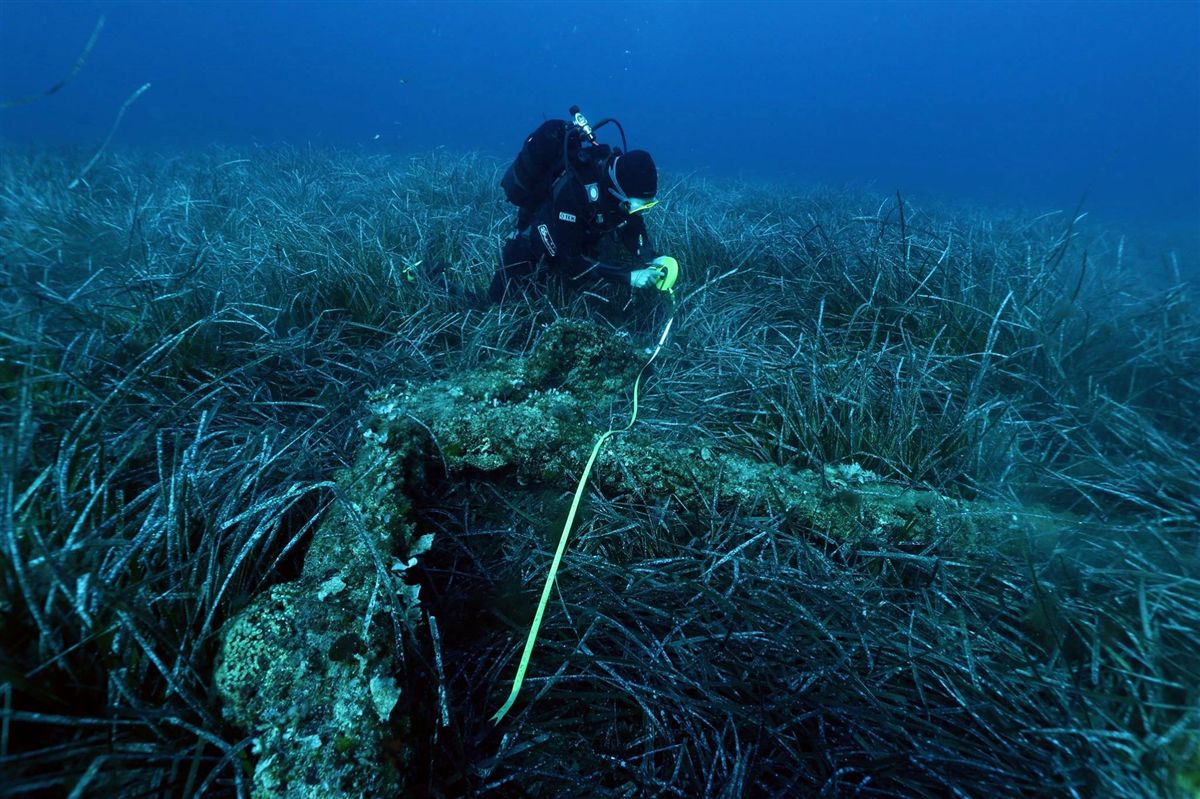 A Roman trading ship carrying Portuguese amphorae has been found in a remarkable state of preservation in deep water off the Balearic Islands.
A Roman trading ship carrying Portuguese amphorae has been found in a remarkable state of preservation in deep water off the Balearic Islands.
The ship sunk around 1,800 years ago on a round trip from Rome to north Africa and was probably heading back home along the Spanish coast when it sunk near the safe haven of of Cabrera Island in the Balearics.
A team of archaeologists say the ship's wreckage is in good repair and that much of the amphorae in the hold are in their original positions.
The 20-metre ship was found in 70 metres of water and was photographed by divers in October 2016. Archaeologists at the Balearic Institute for Maritime Archeological Studies believe it was a merchant ship which was sunk between the third and fourth centuries AD and survived almost intact because the waters in which it lies are now a protected area in a national park.
"As far as we know, it is the first time that a shipwreck has been found in Spanish waters completely unchanged since the sinking," said Javier Rodríguez, one of the archaeologists, at the presentation of the find in the Office of Culture and Heritage of Palma de Mallorca, this Friday.
Inside the vessel, which has been named Cabrera XIV, were found about two thousand amphorae (terracotta storage vessels.) Most were from north Africa, but archaeologists are pretty sure that some examples were made in the Algarve.
The ship probably went down on a route between northern Africa, the Iberian Peninsula, southern France and Rome.
"The Balearic Islands offered refuge for ships that had to take shelter from storms," the researchers explained.
"They probably could not make it into port because of bad weather and the boat sank."























